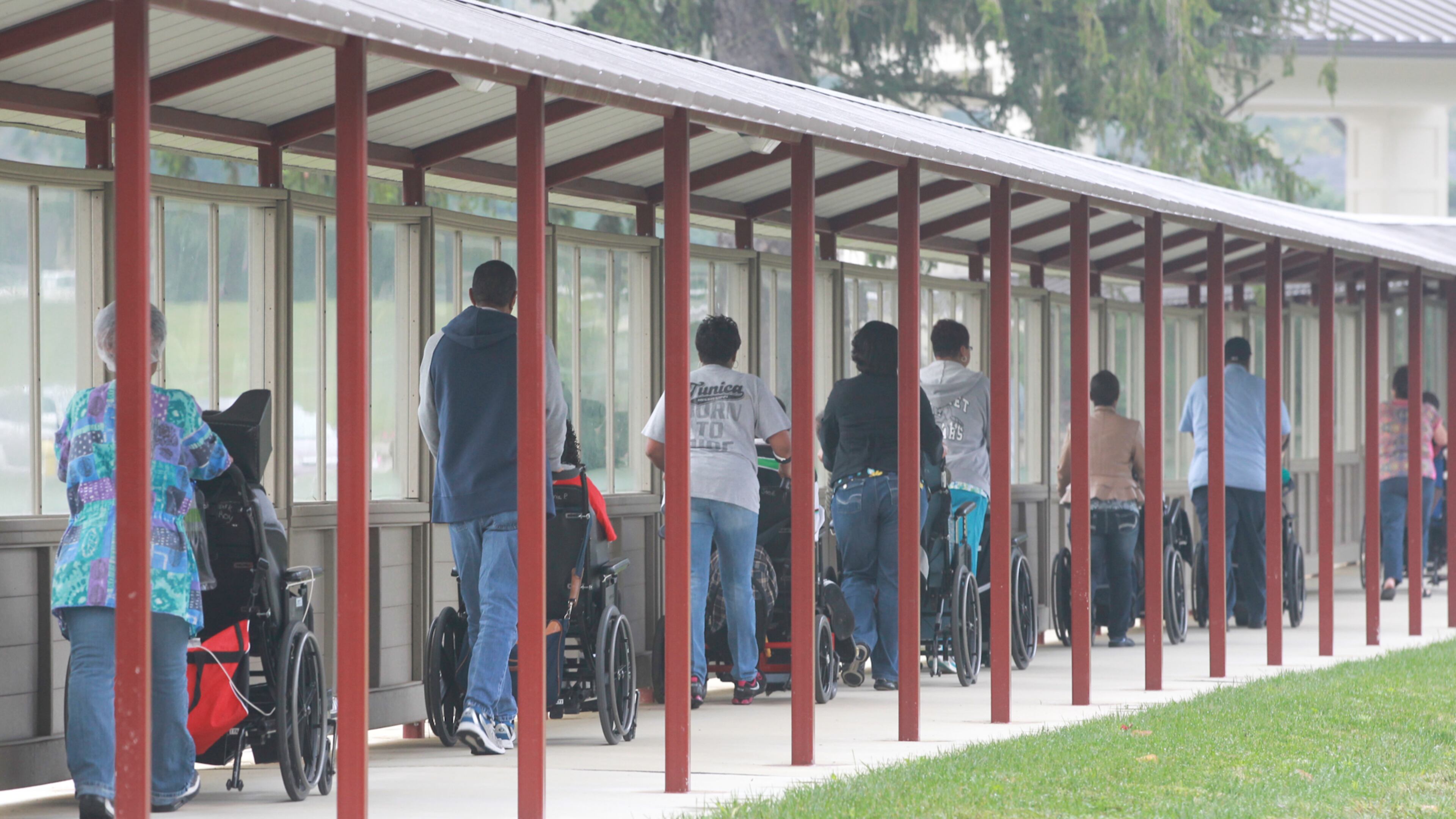Local agencies compete for workers to support people with disabilities

Rochelle Butler said she’s had a rewarding three years working at Choices in Community Living supporting people in the Dayton area with developmental disabilities.
“I have this passion for helping people and it’s a really rewarding feeling,” Butler said.
Agencies that support clients with disabilities are heavily competing now to hire and retain employees like Butler, amid what a trade association for the industry has called a “workforce crisis.”
MORE: Locally-owned pharmacy plans new location
These professionals play a critical role in supporting clients with tasks like transportation, career assistance, in-home care and other kinds of support. But as Ohio’s unemployment rate has fallen to 4.3 percent as of April, competition for workers has heated up and other industries from manufacturers to retailers to nursing homes and more are all trying to attract employees from a tight labor pool.
Additionally, average $10.24 per hour wage can make it a struggle to hire and hold on to direct support workers, especially as some retailers and restaurants raise their wages to competing levels.
Workforce recruitment and retention is at a crisis level, said Mark Davis, president of the Ohio Provider Resource Association, which represents companies that employ direct-support professionals.
“It’s a pretty stark reality that we are about 10 to 20 percent short on employees,” Davis said.
Davis said it’s hard to raise wages, however, when Medicaid is the majority of the agencies’ revenue and reimbursements have not kept up with inflation.
In 2013 the turnover rate for direct support professionals was 4 percent. In 2016, turnover had risen to 51 percent. The association stated the cost of turnover for one direct support position ranges from $3,000 to $5,000, depending on an agency’s structure.
MORE: Ohio’s flu season was the worst in 5 years. Here’s why.
Jobs available
Graceworks Lutheran Services, which has about 20 residential homes for people with intellectual and developmental disabilities, is trying to fill about 25 to 30 full-time equivalent positions to join its staff of about 350 direct support professionals.
There are 272 people served by Graceworks’ day programs, one in Dayton and one in Cincinnati, and 193 people receive residential services from the agency.
It can be hard to compete for employees with manufacturers, which typically pay higher wages. But Jill Brown, recruitment specialist with Graceworks, said that they do compete with retail and restaurants for employees, and as a recruiter she said she tries to make job seekers aware that direct support work can be rewarding.
Graceworks starting pay is $10 to $11.80 an hour depending on experience, and Brown said they have annual pay increases, full benefits and an employee referral program to help attract and retain employees.
“We’re more than happy to train people,” Brown said.
MORE: See how Ohio ranks for senior citizen health
Brown said when she searched recently on Indeed.com for direct support professionals positions in Dayton, more than 400 open jobs showed up, which is a lot of competing employers even assuming some of the positions are duplicate postings.
“That’s still a lot of people competing for the same type of employee,” Brown said.
Marketing the jobs to possible employees
Mitchell Snyder, with Montgomery County Board of Developmental Disabilities Services, said he’s working with agencies to raise awareness among job seekers about how rewarding a career of supporting people with disabilities can be.
The agencies are marketing how the positions can be flexible and for either day or evening shifts, making the jobs a good fit for a range of people looking for extra work like retirees or stay-at-home parents. Snyder said he previously worked as a direct support professional while he was still in school.
Megan Behnken, who works as a leader with a day program at Choices, she said she’s worked in the field since she was 19, including while she was attending Wright State.
TOP READ: Algae plaguing Ohio lakes could force Kasich to take executive action
Behnken said it’s important to be in a job where she gets to work with people, and she likes that there are opportunities to move up in the field or get overtime.
“This is my passion. I definitely want to stay in the field,” she said. “Right now I’m deciding if I want to go back and get my master’s and if I did that it would be to be a special needs teacher.”
Butler, who works in a residential setting helping residents with day-to-day living, said its rewarding to feel like she is making a difference in the lives of her clients. She said the agency she works for also has perks like bonuses and tuition reimbursement since she is a college student.
“I know some people tend to think it’s an overwhelming profession and that’s why the turnover rate is somewhat high. But for me and a lot of other people, I think the pros definitely outweigh the cons,” Butler said.
3 QUICK READS
Direct support career fair
Interested in a job supporting adults with developmental disabilities? Employers will be recruiting this week in Dayton for day and evening shifts. Paid training is provided.
When: 2 p.m. to 5 p.m. Wednesday, May 30
Where: Goodwill Easter Seals Miami Valley at 660 S. Main St., Dayton.
For more information contact Mitchell Snyder at msnyder@mcbdds.org or 937-837-9205.

